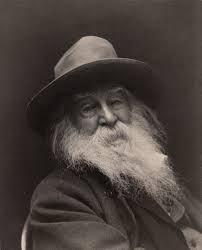On March 19, 1842, Honoré de Balzac's play Les Ressources de Quilona opened to an empty theatre. The fault was Balzac's own; in an attempt to create buzz around the play, he'd started a rumor that the play was sold out. The plan obviously failed to incite the clamor for tickets that Balzac had hoped for. By this time, Balzac was already a well known writer, but his plays had never been received well. They were, in a word, flops. Luckily for Balzac, his novels both made and saved his literary reputation, mitigating the negative impact of his plays. And he's not alone; a number of other famous authors have published works that critics found disappointing.
Emily Brontë
 When Emily Brontë published Wuthering Heights, critics were less than enthusiastic about the book. On December 18, 1847, The Spectator printed a rather harsh review, which echoed the opinions of contemporary critics:
When Emily Brontë published Wuthering Heights, critics were less than enthusiastic about the book. On December 18, 1847, The Spectator printed a rather harsh review, which echoed the opinions of contemporary critics:
"The success is not equal to the abilities of the writer; chiefly because the incidents are too coarse and disagreeable to be attractive, the very best being improbable with a moral taint about them, and the villainy not leading to results sufficient to justify the elaborate pains taken in depicting it."
When a new edition was published in 1850, it included a "Biographical Notice" penned by Charlotte Brontë. In addition to justifying all three sisters' decision to publish their works pseudonymously, she clearly intended to defend her sister against her critics. But most modern critics think that Charlotte overstated the case, making the critics seem more harsh than they'd actually been. At any rate, Wuthering Heights has endured as a paragon of Romantic literature.
Herman Melville
 Herman Melville's magnum opus was first published in England in October 1851 under the title The Whale. Critics gave the novel a lukewarm reception. A month later, the book was published by GP Putnam's Sons under the revised title Moby Dick; or The Whale. Again, critics were less than enthusiastic. In January 1852, a review in Southern Quarterly Review praised the novel for its "highly vivid and exciting" action scenes but called the rest of the book "sad stuff, dull and dreary, or ridiculous."
Herman Melville's magnum opus was first published in England in October 1851 under the title The Whale. Critics gave the novel a lukewarm reception. A month later, the book was published by GP Putnam's Sons under the revised title Moby Dick; or The Whale. Again, critics were less than enthusiastic. In January 1852, a review in Southern Quarterly Review praised the novel for its "highly vivid and exciting" action scenes but called the rest of the book "sad stuff, dull and dreary, or ridiculous."
Readers must have agreed. The book's first American printing was comprised of just less than 3,000 copies, which was relatively conservative for the time. After two weeks, only 1,500 copies had sold, and readers purchased only 470 more copies in the next ten weeks. It wasn't until the 1920's that scholars rediscovered Moby Dick and brought it into the canon of American literature. Now the novel and other works by Melville are staples in the literature classroom.
Walt Whitman
When Walt Whitman published Leaves of Grass, it was immediately recognized as an innovative, revolutionary work--and one that left many of Whitman's contemporary readers utterly  baffled. They'd never encountered poetry that conformed to no set form and used such bold language. They also didn't all embrace Whitman's creative effort. They found it vulgar, criticizing the work's overt sexuality.
baffled. They'd never encountered poetry that conformed to no set form and used such bold language. They also didn't all embrace Whitman's creative effort. They found it vulgar, criticizing the work's overt sexuality.
And Leaves of Grass remained in the critics'spotlight for years, mainly because Whitman would periodically revise and repackage it for republication. An anonymous New York Times review called Whitman vulgar and said the author should strive to be more "civilized." And from 1859 to 1863, Vanity Fair published a series of six parodies of Whitman, which kept Whitman on the minds of American readers and critics alike. The cartoon "Counter-Jumps, A Poemettina-After Walt Whitman." mocks the explicitness of the 1860 edition of Leaves of Grass.
Vladimir Nabokov
Today Lolita is considered a work of great literary merit, despite its raciness. But when Vladimir Nabokov first tried to publish it in the  US, he couldn't find a publisher. Out of desperation, he signed with France's Olympia Press, a publishing house known because three-quarters of its titles were "pornographic trash." At first printing, in September of 1955, the novel was published in two paperback volumes rife with typographical errors. The book sold out almost immediately, but received no noteworthy reviews.
US, he couldn't find a publisher. Out of desperation, he signed with France's Olympia Press, a publishing house known because three-quarters of its titles were "pornographic trash." At first printing, in September of 1955, the novel was published in two paperback volumes rife with typographical errors. The book sold out almost immediately, but received no noteworthy reviews.
Finally, Graham Greene wrote in London's Sunday Times that the novel was one of the year's best. Rival Sunday Express editor John Gordon refuted the claim, calling Lolita the "filthiest book I have ever read" and "sheer unrestrained pornography." When GP Putnam's Sons published an American edition of Lolita in August 1958, the novel entered its third printing within days. It was the first novel since Gone with the Wind to sell 100,000 copies in its first three weeks. The novel continued to garner attention, both positive and negative.








